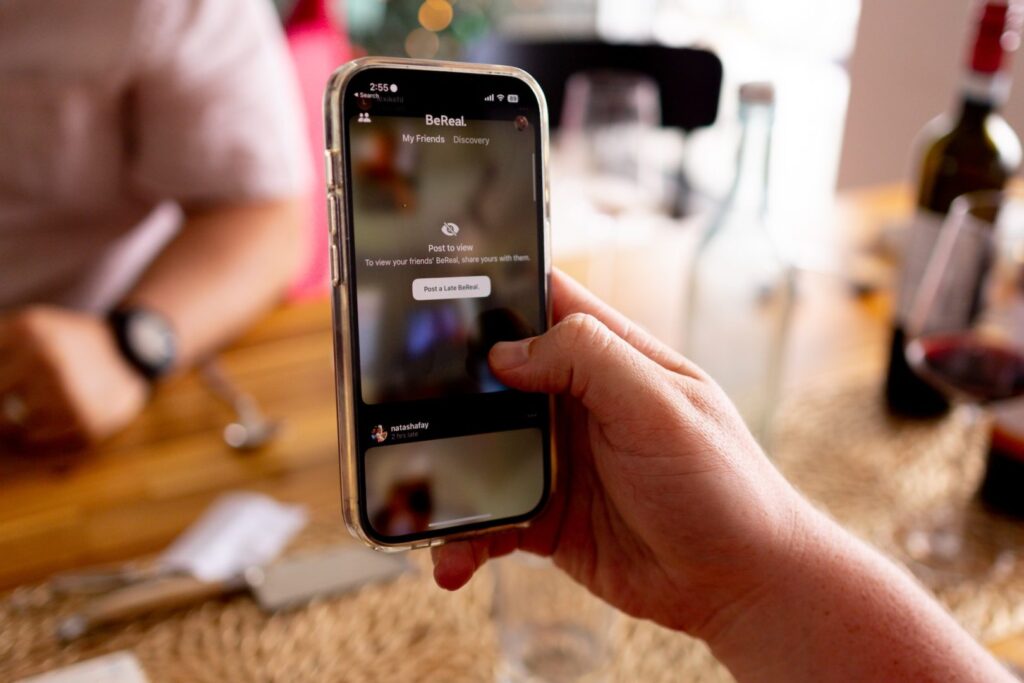Almost everyone uses digital technology and the Internet today. We have a lot of devices in our homes, like mobile phones, tablets, TVs, computers, etc.
Children also use these devices. They spend most of their time watching YouTube videos, playing video games, or scrolling through social media.
Over time, children create their own digital reputation, especially through social media. This includes all the thoughts, experiences, and comments they’ve shared with others online.
Well, this digital reputation can get used against children in the future. We often see professional athletes and celebrities getting criticized over something they’ve posted on social media ten years ago.
Some companies even review every job candidate’s social media accounts when they’re applying for a job. So, in this article, we’ll discuss how a child’s digital reputation can affect their future.
What is Digital Reputation?

As we mentioned before, digital reputation is the sum of all your online activities. This includes what you post, what you comment on, who you follow, etc.
In other words, digital reputation is the respect (or disrespect) gained in others’ eyes through our online activities.
It depends on us whether our digital reputation is bad or good. We form it from the moment we make a social media account, start a blog, or join online chat and debate groups. But we maintain it with what we post, comment, and such.
For example, your child can post offensive and discriminative things on Twitter or Instagram without you knowing. About ten years later, your child won’t get accepted to his/her favorite college because of those comments.
When you think about it, every little opinion you share with others online can be used against you in the future, so teach your children to pick their words.
Why is Digital Reputation Important for Children?

Our children are born with phones. That’s why it’s more important for them to maintain a positive digital reputation.
- Firstly, children’s digital reputation can affect their social status, especially if they say offensive things online. They might get criticized at school, and their friends might unfriend them, all because of a tweet or an Instagram post.
- Moreover, digital reputation has a significant impact on children’s academic success and college admissions, as we mentioned earlier. Studies from Kaplan show that 36% of admissions officers check the applicant’s social media accounts.
- Furthermore, digital reputation can affect a child’s chance of landing his/her dream job in the future. Statistics show that about 54% of employers have turned down a job candidate because of something they’ve posted on social media.
- And last but not least, if you’ve been around social media these days, you might’ve found about cancel culture. Cancel culture is when a famous celebrity or athlete gets criticized (in modern vocabulary, canceled) because of something they posted many years ago.
So, whether your child wants to become a doctor, a famous basketball player, or maybe an aspiring writer, it’s crucial to maintain a positive digital reputation.
How Digital Reputation Can Be Damaged

A person’s digital reputation can be damaged quite easily nowadays. It’s just as sensitive as real-life reputation.
- For example, cyberbullying and discrimination can have a really negative impact on digital reputation. Studies show that about 14% of teens (but that number surely is higher) have bullied others online. Well, that 14% will have a problem getting into a good college, or getting a decent job.
- Another thing that can damage a digital reputation is oversharing. Although it is OK to post where you went on holiday once in a while, documenting everything in your life and sharing too much private information can be unappealing and sometimes even inappropriate.
- And the thing that can damage a digital reputation the most is that everything on the Internet is permanently documented. So, something you’ve said 15 years ago can get you in trouble today!
Protecting and Improving Children’s Digital Reputation

Parents should be involved in protecting and improving children’s digital reputation from the moment they give their children access to the Internet.
But teaching children to maintain a positive digital reputation is just as hard as teaching them to behave. It can be a long process, but it’s worth it.
- Firstly, you should set yourself as an example for your children. If you maintain a positive digital reputation, the chances of your children maintaining a positive digital reputation too are bigger.
- Furthermore, you must follow your children on social media, and check what they post. If you’re afraid that your child hides another profile from you, then you can use parental control apps like mSpy, Qustodio, Norton Family, and others.
- Lastly, but most importantly, you should educate your child on the importance of digital literacy and maintaining a positive digital reputation. You can even organize neighborhood education (if your neighbors have kids), or you and other parents can ask school boards to organize educative lessons on digital reputation.
Conclusion
As we discussed in the article, your child’s future depends a lot on his/her digital reputation. A single tweet or Instagram post can harm your child’s chance to get accepted into a college or job.
That’s why parents, caregivers, and educators must step up and teach children the importance of digital literacy and maintaining a positive digital reputation.
Don’t forget to make sure your child knows how to behave well online before giving him/her access to the Internet. After all, we love our children and wish the best for them.
FAQ
At what age should parents begin teaching children about digital reputation?
Parents should begin teaching children about digital reputation when they start going to school and socialize more with others.
How can parents monitor their child’s online activity without invading privacy?
You can try following your child’s social media accounts or using parental control software to monitor your child’s activity online. But, it’s important to tell your child that you’re monitoring him/her to avoid conflict.
Can a child’s digital reputation be permanently damaged by a single mistake?
Yes, it can. That’s why it is important to maintain a positive digital reputation online and avoid any mistakes.
How can educators integrate digital literacy and online safety education into the curriculum?
Educators can implement special interactive presentations meant for teaching children the importance of digital literacy and online safety.
What steps can a person take to improve a damaged digital reputation?
A person can try deleting any offensive things he/she posted online, and, of course, apologize.
ALSO READ: How Can I See My Child’s Browsing History







